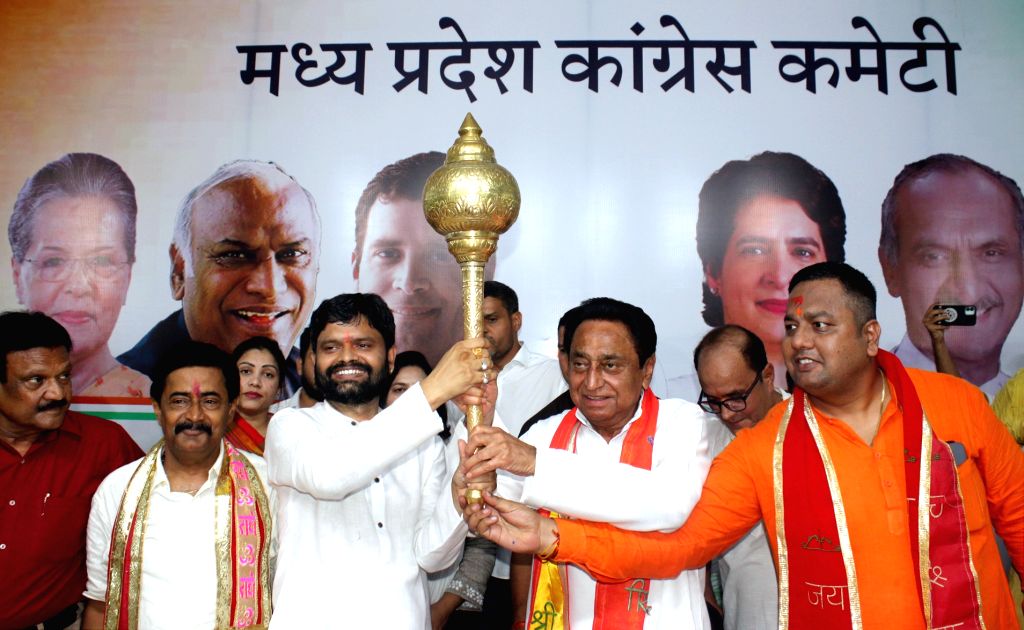In a pre-election move that may or may not draw electoral benefits but clearly sends an ideological message, Madhya Pradesh’s (MP) Bajrang Sena has merged with the Indian National Congress. PTI reports that leaders of the outfit are are close to former minister Deepak Joshi, who had quit BJP to join Congress. The merger happened in the presence of MP Congress president Kamal Nath. The merger announcement was made by BS national president Rajnish Pateria and coordinator Raghunandan Sharma. Joshi was also present on the occasion. Slogans of “Jai Sri Ram” rent the air as members of this controversial outfit presented a mace and memorabilia to Kamal Nath. Appreciating the move, Nath also alleged chief minister Shivraj Singh Chouhan is making hollow announcements as elections are approaching.
“Chouhan has made more than 20,000 announcements so far which are never implemented. As the assembly polls are nearing, Chouhan is now remembering women, youths and employees. He had done nothing for them in the last 18 years while in power,” Nath claimed. He said the people have decided to end the rule of BJP this time “which came to power by horse trading”, apparently referring to the toppling of the Nath-led government in March 2020.
Pateria said a large number of workers who have joined Congress will surely ensure the defeat of the BJP, “which had come to power by cheating the people’s mandate”. Bajrang Sena was founded in Chhatarpur in 2013. It used to agitate on religious and social issues.
In the last state assembly polls in 2018, the Congress won 114 of 230 seats in Madhya Pradesh. The BJP finished second by winning 109 seats. However, the Congress formed a coalition government with the support of Independents BSP, and SP.
What does this merger mean?
From Gujarat to Madhya Pradesh, the Congress has made no bones of its rightward shift, earning for itself labels like the ‘B’ Team of the Bharatiya Janata Party (BJP) or being followers of “soft Hindutva.” Under Kamal Nath in the large and significant central Indian state this path seems clear. The visible move by Kamal Nath in this direction was portraying himself a Hanuman bhakt, holding religious events centered around the Lord Ram devotee, setting up a massive Hanuman idol on his political turf Chhindwara, and even courting controversy when he cut a temple-shaped cake with the portrait of Hanuman on it on his birthday in November 2022. The merger of the Bajrang Sena with the Congress on June 6, marks at least one more turn in that transition. The Hindutva outfit’s goals have been protection of cows and Hindu saints, construction of gaushalas and a monthly stipend to temple priests – unlike the more progressive and secular electoral promises recently made by the party in the southern state of Karnataka.
Ironically this tendency of the ‘grand old party’ to ally with the right wing from both sides of the religious divide has earned it blame of not battling for a clear and non-discriminatory brand of secularism. Within the Muslim religious minority too, representation to conservative male elements, even clergy, rather than modern, outward looking professionals is one example.

